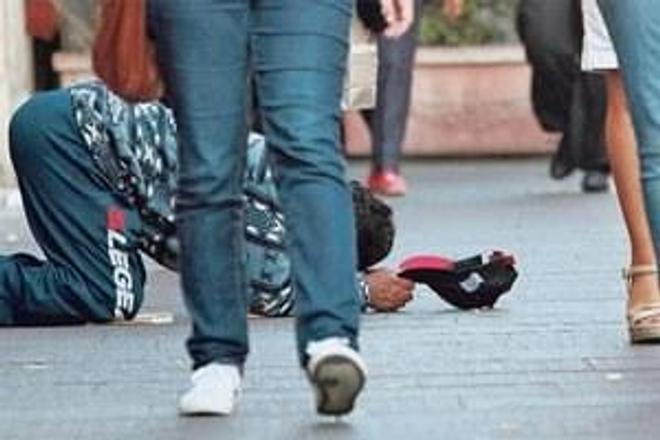They are abused mostly for forced labour but there are also cases of forced begging and sexual exploitation, said Tímea Stránská from the People in Need non-governmental organisation at the October 13 press conference.
Slovak Roma often depart to Great Britain, particularly to the cities of Peterborough, Sheffield, Leicester, Derby, Birmingham and Glasgow. Other countries of interest include Germany and the Czech Republic. Human traffickers often lure their victims directly from Roma settlements.
“The victim is often recruited by members of their distant family or one of their acquaintances,” Stránská said, as quoted by the TASR newswire.
The main victims are young people aged 16-25 years, men aged 25-35 years, and homeless people. They often come from Michalovce, Košice-okolie, Snina, Sabinov, and Lučenec districts.
“Roma from excluded localities very rarely turn to the police because of fear, distrust and low legal awareness,” Stránská continued, adding that this is why the role of social field workers is important.
Child victims concern mostly adolescents aged 13-18 years from foster homes, particularly Roma, as reported by TASR.
According to the Interior Ministry statistics, 34 people asked for protection from human trafficking, especially women. They often fall victims of sexual exploitation and forced labour and also forced marriage, begging, committing crimes or slavery.
The profit from these activities may amount to some $150 billion, although the funds spent on luring the victims are very low, said Jozef Halcin of the Interior Ministry.
Non-governmental organisations and the Interior Ministry want to point to the risks of human trafficking at the October 20 conference. The International Organisation for Migration will train employees of educational centres, foster homes and re-education centres on how to avoid human trafficking within the “Don’t become a slave” project. In addition the Slovak Catholic Charity will organise the second year of film festival Together against human trafficking in Košice on October 16, while the People in Need organisation will issue two publications on this topic, TASR wrote.


